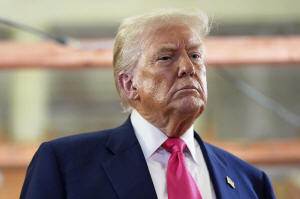|
The bulk of the spending being clawed back is for foreign
assistance programs. About $1.1 billion was destined for the
Corporation for Public Broadcasting, which finances NPR and PBS,
though most of that money is distributed to more than 1,500
local public radio and television stations around the country.
The White House had billed the legislation as a test case for
Congress and said more such rescission packages would be on the
way.
Some Republicans were uncomfortable with the cuts, yet supported
them anyway, wary of crossing Trump or upsetting his agenda.
Democrats unanimously rejected the cuts but were powerless to
stop them.
The White House says the public media system is politically
biased and an unnecessary expense. Conservatives particularly
directed their ire at NPR and PBS. Lawmakers with large rural
constituencies voiced grave concern about what the cuts to
public broadcasting could mean for some local public stations in
their state. Some stations will have to close, they warned.
Sen. Lisa Murkowski, R-Alaska, said the stations are “not just
your news — it is your tsunami alert, it is your landslide
alert, it is your volcano alert.”
On the foreign aid cuts, the White House argued that they would
incentivize other nations to step up and do more to respond to
humanitarian crises and that the rescissions best served the
American taxpayer.
Democrats argued that the Republican administration’s animus
toward foreign aid programs would hurt America’s standing in the
world and create a vacuum for China to fill. They also expressed
concerns that the cuts would have deadly consequences for many
of the world’s most impoverished people.
“With these cuts, we will cause death, spread disease and deepen
starvation across the planet,” said Sen. Brian Schatz, D-Hawaii.
All contents © copyright 2025 Associated Press. All rights
reserved |
|




